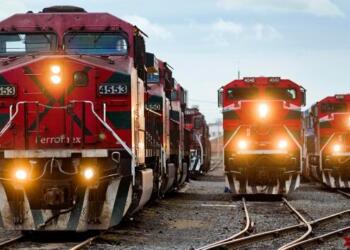 Recent weeks have tested the resilience of transportation in the Valley of Mexico . Heavy rains not only clog roads, they also increase logistical disruptions, delay deliveries, and increase frustration among both businesses and consumers.
Recent weeks have tested the resilience of transportation in the Valley of Mexico . Heavy rains not only clog roads, they also increase logistical disruptions, delay deliveries, and increase frustration among both businesses and consumers.
In this context, technology has ceased to be an option and has become a critical necessity.
For Emilio González Polz , director of DispatchTrack Mexico , the challenge goes beyond avoiding traffic; it’s about having the capacity to adapt and the resilience of companies.
“We can’t control the rain or the traffic chaos, but we can control how we respond,” he said.
From platforms that dynamically reconfigure routes to control towers that anticipate congestion or adjust deliveries based on weather conditions, the future of logistics is built on data, algorithms, and strategic vision.
One of the keys, González explained, is for systems to learn from reality.
“When we forecast heavy traffic due to rain, our tool not only recalculates times; it also suggests reducing the number of planned deliveries to fit a more realistic speed. This allows us to deliver on our promises, even if it means underpromising,” he said.
Artificial intelligence (AI) , for its part, is accelerating this process. It not only improves the accuracy of forecasts and integrations with enterprise resource planning (ERP) systems , but also helps optimize decisions during operations, such as activating contingency plans when a route collapses or prioritizing deliveries based on human and logistical criteria.
In addition to dynamic routing, other tools such as heat maps can identify areas of high demand and low efficiency, key to planning everything from new stores to distribution centers.
“This has become critical for sectors facing constant pressure to meet almost immediate delivery promises,” said Emilio González.
He also alluded to trends such as quick commerce , which is no longer exclusive to pharmacies or fast food, but also impacts retail and the hardware industry, to name a few.
Cases like Sam’s Club , where DispatchTrack has implemented solutions to improve the delivery experience, show that using real-time data and effective communication with the end customer can make a difference, even on chaotic days.
“When the customer knows what to expect, their perception of the service changes completely,” González added.
In a country where logistical challenges are not limited to infrastructure, but also to political variables such as tariffs or unforeseen blockades, technology appears to be a strategic ally.
Comment and follow us on X: @jenna_GH_ / @GrupoT21














